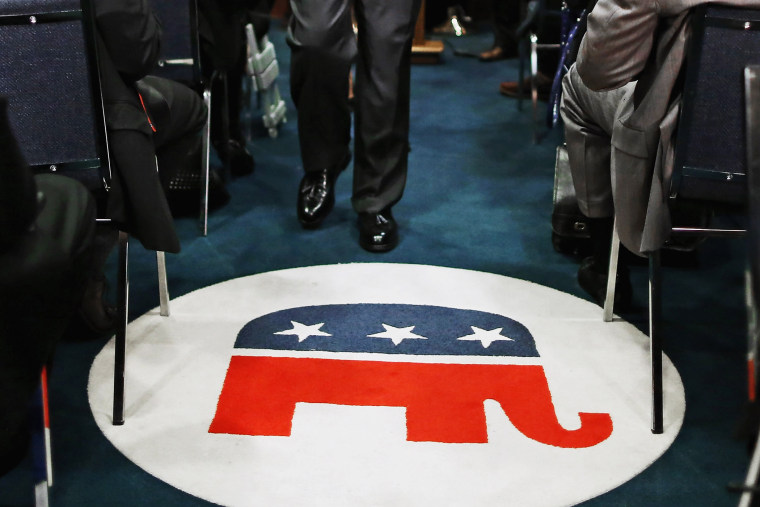During Congress' summer break, Sen. Cory Gardner (R-Colo.) hosted a series of town-hall events with his constituents, many of whom were, shall we say, displeased with Gardner's support for his party's regressive far-right health care plans. At one event, the Colorado Republican, recognizing the crowd's attitudes, asked his audience, "How many people support single payer healthcare?"
Many attendees raised their hands, prompting the GOP senator to respond, "Let me tell you what that would mean: this would cost the country 32 trillion dollars."
That number popped up again yesterday, when the Republican National Committee, responding to Sen. Bernie Sanders' (I-Vt.) new "Medicare for All" proposal, asked via Twitter, "Where does Bernie think the $32 TRILLION to pay for single-payer health care is coming from?" The Trump White House has been pushing the same figure.
Even some journalists have begun using that price tag as if it were an accepted fact -- which is a shame, because it's not a figure to be taken seriously.
There are legitimate criticisms of single-payer, but this isn't one of them. Indeed, Cornell's Robert Frank recently explained that the argument has it backwards: a "Medicare for All" system, with lower administrative costs, increased bargaining power, and lower advertising costs, would be considerably cheaper than our current approach.
The Washington Post's Paul Waldman also had a good piece on this:
Let's look at what we're paying now. In 2016, we spent $3.4 trillion on health care. That spending is projected to rise an average of 5.6 percent per year over the next decade. If you do the math, that means that between 2018 and 2027 we'll spend $49 trillion on health care in America. That's the current system.That $32 trillion number the CNN folks are tossing around comes from an analysis of the Conyers bill, which is basically a placeholder -- it's only 30 pages long, which for bill texts is like an executive summary of an executive summary..... Nevertheless, Republicans have seized on the $32 trillion number to scare people into thinking that Democrats want to raise their taxes some insane amount.... But if we're going to spend $49 trillion under the current system, and single payer would cost $32 trillion, doesn't that mean we'd be saving $17 trillion?
The assumption behind the GOP talking point is that we're talking about investing additional money on top of what we're spending now. But that's completely wrong.
Love Bernie Sanders' plan or hate it, he's describing a model in which health care resources are allocated differently. He and his allies don't want to build something new on top of a multi-payer system; they want to replace it with a single-payer system. The financing change comes with how we'd pay for care, not how we'd maintain what we have and add new benefits.
By any fair metric, this change would save an enormous amount of money. Republicans may balk for other reasons, but the cost argument is nonsense.
